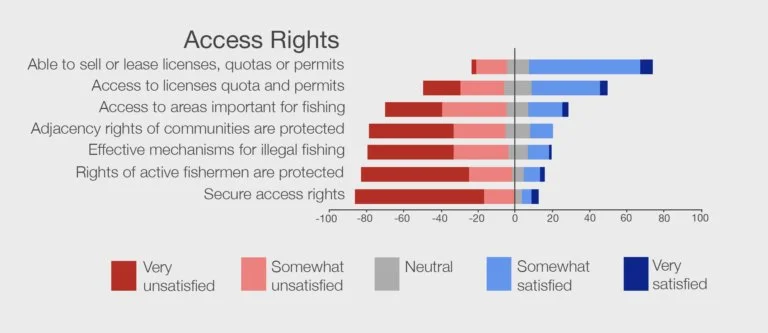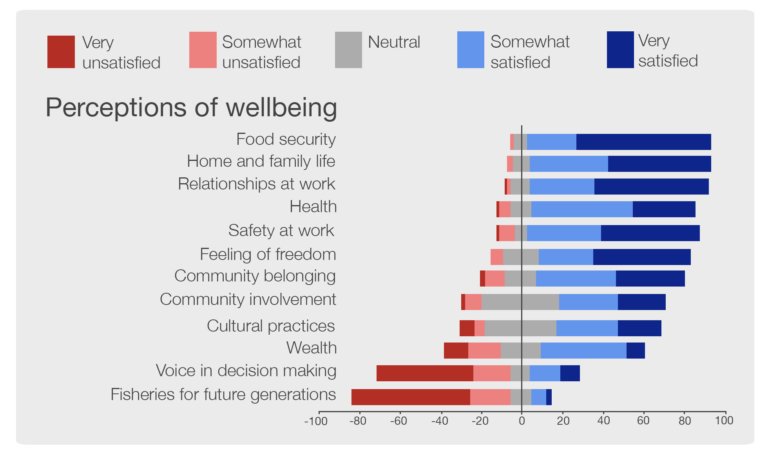New Study Examines Harvester Point of View on Fishing Access
Harvester thoughts on fishing access
Our BC coastal communities heavily rely on fishing to support their livelihoods, culture, and food security. In recent years increased pressure on resources, climate change, declining stocks and increased regulations have put Indigenous and non-Indigenous harvesters, business owners, and coastal communities in an increasingly vulnerable position. Communities have experienced declines in fishing jobs, infrastructure and processing facilities that support their livelihoods.
A team of researchers and practitioners with the OceanCanada Partnership, including members of The TBuck Suzuki Foundation, Ecotrust Canada, UBC Oceans and Fisheries, and the Nuu-chah-nulth Fisheries Department, collaborated to better understand the needs of Indigenous and non-Indigenous commercial harvesters and their communities. They investigated one of the most significant and growing challenges facing fish harvesters in BC: access – the ability of fish harvesters to use and benefit from available marine resources. They explored many facets of access, including access to proper equipment, local knowledge, fishing skills and/or training, community support, government support, finances, and rights to fish.
The team sought to bring the voices of harvesters to the forefront of their research by conducting surveys and interviews with harvesters in coastal communities throughout BC.
Map of coastal British Columbia with location of fishing communities where surveys were conducted. Image from Fishing for a Future.
Most fish harvesters expressed satisfaction with their access to the boats and equipment needed for fishing, felt they had the skills needed to do their job, and that they had a supportive social network. Harvesters overall expressed a strong satisfaction with their fisherman identity.
“We do it because we love it. It’s a great lifestyle, being a fisherman.” – BC Harvester
Access to fishing rights, licensing, and quota stood out as an area of deep dissatisfaction among fish harvesters. Furthermore, the vast majority of fish harvesters were very dissatisfied with the security and protection of their rights and the rights of coastal communities to fish. Most were also frustrated with their ability to have a voice in fisheries management and did not feel they were receiving sufficient governmental support. This insecurity is having a crippling effect on our province’s Indigenous and non-Indigenous harvesters and coastal communities. “This report shows the importance of legal access for harvesters and coastal communities,” says Jim McIssac, TBuck Executive Director. “If we want resilient coastal communities in the face of rapid change we must keep legal access in the hands of harvesters and coastal communities. This will protect us now and for generations to come.”
Harvester satisfaction with each category of access rights. Image from Fishing for a Future.
Insecurity around the present state of fisheries may affect fish harvesters’ vision of the future. The study found that 77% of fish harvesters were concerned about the outlook for future fishing generations.
Harvesters satisfaction with each category of wellbeing. Image from Fishing for a Future.
“Most of the fish harvesters in our survey are older,” says Nathan Bennett, PhD, co-author of the study. “Younger generations are struggling to get into the fishery. Younger fish harvesters need assistance and programmatic support.” Action to support BC coastal communities is vital. There is a need to find pathways to ensure future generations can continue to benefit from fisheries. Canada’s fisheries and coastal communities strengthen our rural economies, support robust food systems, and act as active stewards of the marine environment they rely on. Addressing issues related to the human dimensions of fisheries is a key to the sustainability of our ecosystems and our communities.






